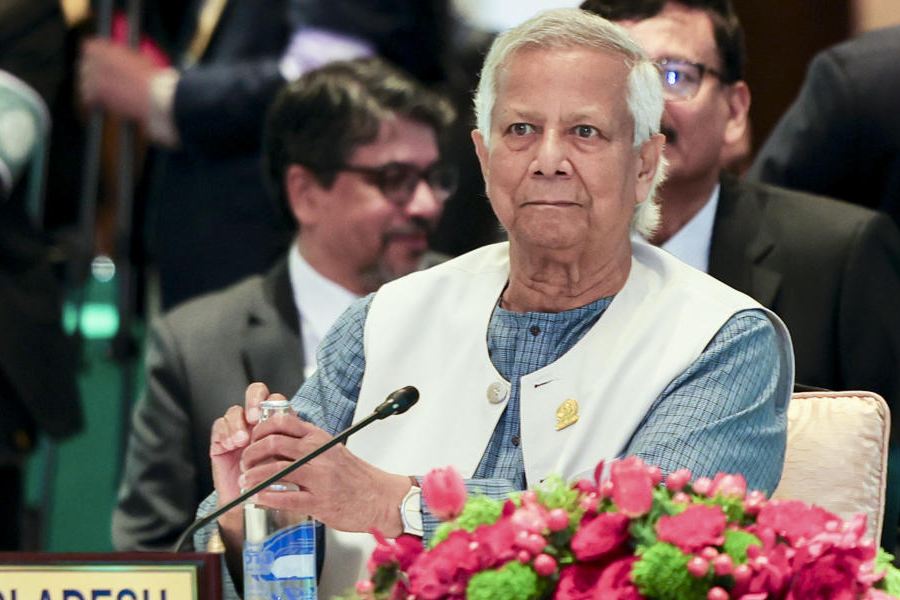 |
Among new biographical plays on the Bengali stage, two concern two famous 19th-century Calcutta ladies, contemporaries who shared a tragic connection with one of the most artistic aristocrats of that time. Behula Anudarshi’s Ek Nari Kadambari narrates the life of Kadambari Devi, Jyotirindranath Tagore’s wife; Unity Malancha’s Nati Binodini celebrates the sesquicentenary of Binodini Dasi, the celebrated actress with innumerable admirers, including Jyotirindranath.
Sumana Chakraborty has scripted, acted and directed the one-woman show on Kadambari — a formidable task, given that so much about Rabindranath Tagore’s favourite sister-in-law remains shrouded in secrecy. Chakraborty’s research spans a comprehensive spectrum: the memoirs of various Tagores (Rabindranath, Abanindranath, Jnanadanandini, Sarala, Indira), Rassundari Devi’s autobiography, biographies by Prasantakumar Pal and Amit Maitra, and later works on the family by Sunil Gangopadhyay, Chitra Deb and Mallika Sengupta. This enables her to cover Kadambari’s short life in detail, from humble origins to Jorasanko upbringing, where the snide remarks of the more classy women (particularly Jnanadanandini) hurt her deeply, to her close friendship with the younger Rabi in their teens. Happiness turns to depression as her husband distances himself, possibly infatuated by Binodini; and when she, still childless, holds herself responsible for the death of Swarnakumari Devi’s daughter who fell down the staircase while she slept. After one failed suicide attempt, she kills herself within months of Rabi marrying a girl whom she chose.
Depicting Kadambari as isolated and victimized, Chakraborty does not flinch from iconoclasm about the great Tagores. Her versatile performance (picture), mainly third-person, maintains an objectivity yet equally empathizes with her subject. However, she seems in too much haste to finish, rushing through her lines; instead, she should vary the pace of episodes and delivery.
Binodini, on the other hand, has had several plays written about her, notably Nati Binodini by Chittaranjan Ghosh. With such precedents, one wonders why Rajat Ghosh wrote another drama by the same name, as he does not add anything unknown to the corpus. In his version, directed by Debashis Sarkar and enacted by Nancy, the legendary first lady of commercial theatre becomes mostly a passive sufferer. We do not find enough evidence of her strong personality or powerful performances, without which she could not have made such a name. Sarkar himself plays an unheroic and inebriated Girish Chandra Ghosh, her guru, but Ajitesh Bandopadhyay had presented this unflattering interpretation before. Let us await other tributes to Binodini this year before passing final judgment.











